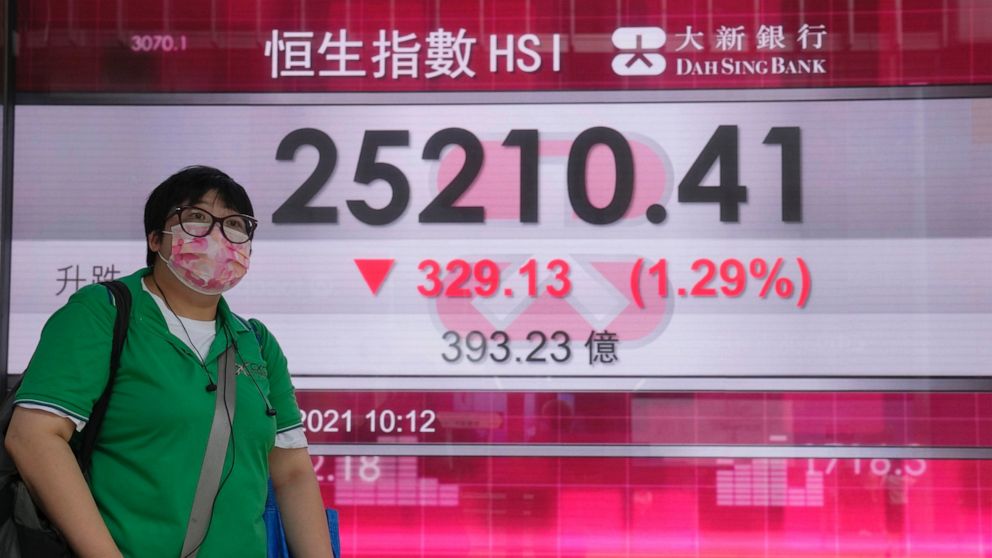S&P 500 ends August higher, its 7th straight monthly gain
Stocks ended a wobbly day with mixed results on Wall Street Tuesday, but the S&P 500 still managed to close out August with a solid gain
TOKYO — A wobbly day on Wall Street ended Tuesday with major indexes slipping just below recent record highs, but the S&P 500 closed out August solidly in the green with its seventh straight monthly gain.
Investors are busy trying to figure out just how much of an impact rising COVID-19 cases will have on the still recovering economy. The market has been choppy amid a mix of economic data, some of which has signaled that consumers are becoming more cautious.
“The market is still really dealing and grappling with the question of what direction are we taking,” said Rob Haworth, senior investment strategist at U.S. Bank Wealth Management.
Investors are gauging which areas of the market are poised to benefit in the coming months as supply constraints continue to hamper some industries while COVID-19 continues to threaten the economic recovery, he said. The uncertainty has contributed to shifting gains and losses for services-oriented sectors and other areas of the economy that typically do well in a growing economy.
The S&P 500 index fell 6.11 points or 0.1%, to 4,522.68, after setting a record high a day prior. The Dow Jones Industrial Average fell 39.11 points, or, 0.1%, to 35,360.73 and the Nasdaq slipped 6.65 points, or less than 0.1%, to 15,259.24.
Technology stocks were the biggest weight dragging down the benchmark S&P 500, despite more stocks rising than falling within the index. Smaller company stocks fared better than the broader market in a signal that investors were somewhat confident about continued economic growth. The Russell 2000 rose 7.78 points, or 0.3%, to 2,273.77.
Despite the choppiness, the S&P 500 powered through August for a 2.9% gain. That marks seven straight monthly gains, the longest such streak since early 2018. The Nasdaq closed the month with a 4% gain.
The market has been lifted by a number of factors this month. Corporate earnings came in much better than expected, giving investors confidence to pay premium prices for an already lofty market. Also the Federal Reserve has made it clear that it believes inflation will be temporary and any pullback of financial support from the central bank would be gradual.
Energy prices mostly declined for a second day, as fears of widespread devastation to U.S. oil and gas production in the Gulf of Mexico after Hurricane Ida appeared be overblown. Oil companies began gradually restarting refineries in Louisiana and Colonial Pipeline said it restored flows to several pipelines that run through the south. Oil prices fell 1%, while natural gas prices rose 1.7%.
The latest economic data showed once again the impact the delta variant of the coronavirus is having on the economy. Consumer confidence in August fell sharply to a reading of 113.8 compared to a reading of 125.1 in July. Economists has been expecting a reading of 124.0. Most of the decline was tied to the spread of the virus in the past month, which has inundated hospitals with patients and deaths are climbing again.
The weak report weighed down some companies, such as clothing and apparel makers, that rely on discretionary spending from consumers. Under Armour fell 4.1%. Tapestry, which owns Coach and Kate Spade, fell 2.3%
Investors’ eyes will be turning to key economic data later this week, when the Labor Department releases its August jobs report on Friday. Economists are expecting that U.S. employers created 750,000 jobs last month, according to FactSet, with the unemployment rate dropping to 5.2%.
The bond market was quiet, with the 10-year Treasury note trading at a yield of 1.30%. That’s up from 1.28% the day before.
![]()


